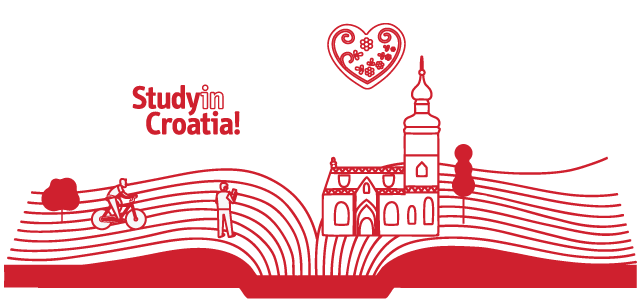Average monthly living expenses in Croatia are estimated between 400 and 700 EUR, depending on the type of accommodation (student dorm or privately rented housing) and the city in Croatia. Larger cities like Zagreb or Split as well as popular touristic destination are more expensive than smaller ones as a rule. Still Croatia is considered as less expensive than western Europe and USA.
For more information on average prices in Croatia please visit Numbeo.
Please note that since 1 January 2023 Croatia has been part of the Eurozone and the Schengen area. The official currency of the Republic of Croatia is the Euro (EUR).
Major credit cards (American Express, Diners Club, Mastercard/Eurocard, Visa) are widely accepted across the country in shops, hotels and restaurants, but it is advised to check at every point of purchase whether credits cards are accepted. Credit cards can also be used to withdraw cash from many ATMs across the larger cities.
Foreign currency can be exchanged in banks, currency exchange offices, post offices or at some hotels’ reception desks.
Banks are usually open from Monday to Friday from 8 am to 7 pm and on Saturdays from 8 am to 12 pm, but office hours may vary, especially in smaller towns. Banks are closed on Sundays and national holidays. Cash points (ATM-Automatic Teller Machines or bankomat in Croatian) are open 24 hours a day, and there are plenty of them (especially in larger cities).
The following documents are needed to open a bank account for non-residents:
- Passport, ID or identification card for foreigners issued by the Croatian authorities
- personal identification number (OIB) assigned by the Tax Authority of the Ministry of Finance
There are usually no charges for opening a current account, but there are charges for running accounts and these vary depending on the bank. Some banks also charge for closing an account.
For a list of licensed banks in Croatia, please consult the database of the Croatian National Bank.
